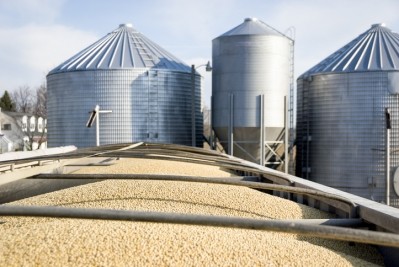OSHA cites ADM for explosion at Decatur plant

A lack of preventative maintenance on the explosion suppression system of a bucket elevator was a major factor in an explosion at ADM’s West Plant at its Decatur, Illinois campus on April 20 this year, federal investigators found.
Three employees were hospitalized with burns and other injuries and there was extensive damage to the grain elevator.
The US Department of Labor’s Occupational Safety and Health Administration (OSHA) cited ADM for "two willful, one serious and one other-than-serious" health and safety violations and proposed US$324,796 in penalties related to the incident.
The OSHA team investigating the combustible corn germ dust explosion concluded that the explosion suppression system on the indoor bucket elevator leg was non-functional and in a state of disrepair. The US agency also found the Decatur grain processing facility had not conducted inspections and testing of the explosion suppression systems since late 2016.
“ADM knows the important role maintenance and testing plays in protecting the lives and health of their workers and their property from two previous explosions and yet failed to follow common industry practices and OSHA standards to maintain these protective systems,” said OSHA area director, Edward Marshall. “Agriculture dust can explode in mere seconds when an ignition source is readily available. Dispersion of the dust particles can lead to rapid combustion known as deflagration. It causes explosions, worker injuries and extensive damage, as we saw in this case.”
Additionally, the federal agency issued citations ADM late last month following their probe into the April 11, 2023 death of a locomotive cab operator in a collision at the company's East Soy Plant in Decatur. The agency cited a violation of the general duty clause, claiming that ADM had not ensured that crews positioned rail cars with sufficient clearance to prevent a collision. OSHA proposed $15,625 in penalties.
Meanwhile, the agency also has an open inspection at ADM’s East Plant after another explosion and fire injured eight workers on September 10 this year.
Jackie Anderson, spokesperson for ADM, told us: “Safety is our highest priority at ADM, and we are committed to learning and improving when an operational event occurs so that it does not happen again. We have cooperated fully with OSHA during their investigation of the incident at the West Plant elevator in April. We are reviewing OSHA’s concerns, and we look forward to discussing them further with the agency.”
Earlier incidents
In April 2019, OSHA cited ADM for not inspecting and testing critical safety systems after a November 2018, explosion at its East Campus caused extensive damage.
As part of a formal settlement, OSHA said the company agreed to conduct and document preventative maintenance on safety control equipment and to follow inspection procedures consistent with the manufacturer’s recommendations.
Moreover, in a corn dust explosion/deflagration incident in January 2019 at ADM’s East Wet Milling Corn Plant at Decatur, OSHA wrote to the agribusiness giant outlining concerns with the performance and documentation of equipment maintenance of explosion suppression and other systems.
“Employers are required to take necessary steps to eliminate grain explosion hazards by using proper dust collection systems and filters, good housekeeping, eliminating potential ignition sources and conducting testing and maintenance of safety systems designed to prevent these tragic incidents,” stressed OSHA.












